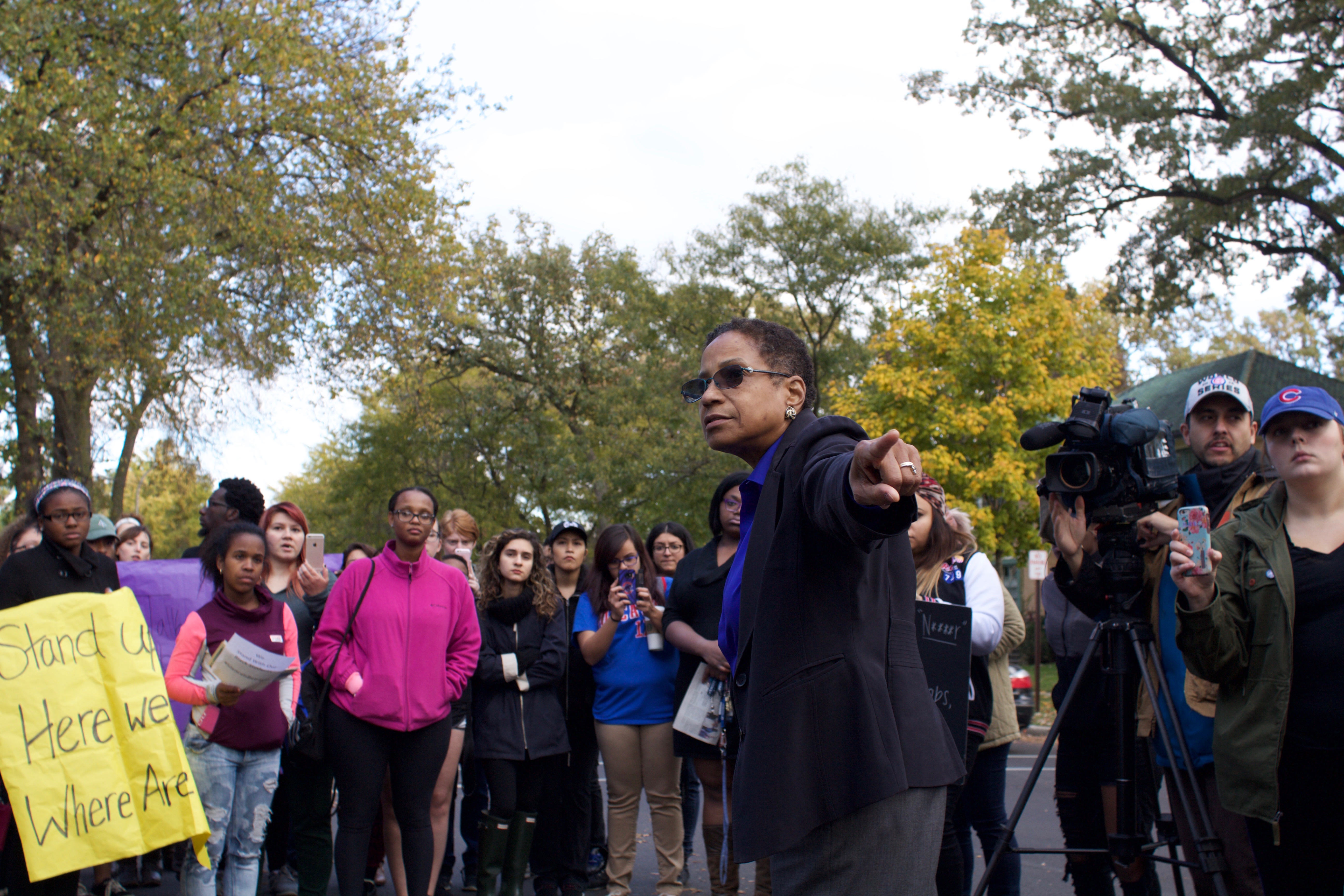
Gabriella Fusco
contributing writer
On Sep. 22, the U.S. Department of Education released a new “Dear Colleague” letter giving colleges and universities the option to alter follow-up actions and consequences related to sexual assault.
“The guidance that they [the U.S. Department of Education] released said colleges and universities can choose what standard they’re going to use,” said Title IX coordinator and Chief Diversity Officer Dr. Sheila Radford Hill. This was different to the prior legislation that had more set and stone standards of what procedures institutions had to follow.
Some new guidelines included in this letter was a statement from the Secretary of Education, Betsy DeVos where she states, “that the evidentiary standard… set out by the Dear Colleague letter of 2011… was unfair to perpetrators.”
Radford-Hill said, “Approaching how colleges and universities should handle these issues with a one size fits all Dear Colleague letter she [DeVos] felt was not appropriate. She wanted to give colleges and universities more flexibility in how they approached or handled cases of sexual assault,” said Radford-Hill.
Dominican University has submitted a response to the Federal Government’s new guidance during the government’s feedback period. “We don’t particularly agree with Mrs. DeVos’s characterization of the previous Title IX guidance, but we agree that colleges and universities have to keep their campuses safe from sexual assault” said Radford- Hill. In addition, Radford-Hill sent out an email to the Dominican community explaining that the university is not changing its policy.
“We have a One Process system, and that system is designed to investigate cases of sexual assault, gender-based misconduct and discrimination, and to do it fairly, and to do it thoroughly,” said Dr. Radford Hill. “We have that system, that system meets the requirements of Title IX under the 2011 ‘Dear Colleague’ letter and under the new version of the ‘Dear Colleague’ letter” said Radford- Hill.
Spanish Professor Lisa Petrov agrees, “Just because national regulations are eased doesn’t mean we have to relax our own expectations for ourselves,” said Petrov. “Creating a more just and humane world includes our own campus. We should never lose sight of that.”
Dominican will keep the same standards moving forward and will not also not alter any cases currently being processed. Victims of sexual assault will not be held to a higher standard of proof for their cases to be eligible for investigation.
Professor Christina Perez from the Study of Women and Gender discipline said “It’s important for students to be aware of Dominican’s commitments to the earlier standards because fall is generally a high point for sexual misconduct” she said. “Right now we are in the Red Zone, the time between the beginning of the semester and Oct. 31, when the highest rates of misconduct is reported.”
The New legislation also took away the 60-day timeline for the processing of all Title IX reports to be processed. “60 days sounds like forever and in the life of a student… but we try as hard as we can to move the cases through so we are assured a thorough and complete investigation” said Radford-Hill. She explains that even if students transfer from universities with different standards, once at Dominican they have to follow Dominican’s standards and adhere to our policies.
According to Wellness Center Counselor and Peer Wellness Advocate Advisor Kathleen Janosky, the Wellness Center won’t be affected by the changes.
“The Wellness Center is a confidential resource for all students impacted by sexual violence. We can help students discern their options and be a place of support and we work in conjunction with Pillars, a domestic violence and sexual assault agency,” said Janosky.
Radford-Hill emphasized that with all the policy change, the most important thing is that Dominican is still focused on protecting the students.
“Sexual assault is a very difficult situation to talk about and deal with. What I want your readers to know is that, when the unthinkable occurs, it is our responsibility as best we can to protect a victim and help them become a survivor. Our strategy is to prevent sexual assault and gender based misconduct to protect people when this occurs and to respond if an ad-judiciary process is necessary … and we’re going to do that because that protects our community and the dignity of every person in it. We are particularly concerned that people who have experienced sexual assault can go beyond it and survive it,” said Radford-Hill
fuscgabr@my.dom.edu
